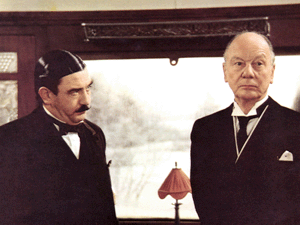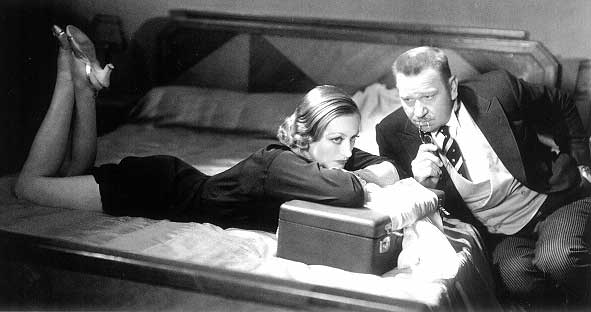 I apologize for being so lazy, dear readers, but school was particularly hectic last week, between two tests and the sudden revelation by a professor that I had to write a 10-15 page paper in a week (There was no procrastination on my part, just so you know).
I apologize for being so lazy, dear readers, but school was particularly hectic last week, between two tests and the sudden revelation by a professor that I had to write a 10-15 page paper in a week (There was no procrastination on my part, just so you know).Anyway, here is Cat on a Hot Tin Roof, the Tennessee Williams classic about lust and love. The film stars Paul Newman as Brick,a former high school football star who is a bit too fond of the bottle, and breaks his leg one night after attempting to jump some hurdles while drunk. Brick and his wife Maggie (Elizabeth Taylor) are in Mississippi, visiting Brick's parents because of his father, Big Daddy's birthday. Unknown to Big Daddy, he is dying of cancer, and the birthday
 festivities, Brick's alcoholism, and the scheming of Brick's brother and sister-in-law to ensure a large chuck of the inheritance once Big Daddy dies brings to light the issue plaguing the family and the marriage of Brick and Maggie.
festivities, Brick's alcoholism, and the scheming of Brick's brother and sister-in-law to ensure a large chuck of the inheritance once Big Daddy dies brings to light the issue plaguing the family and the marriage of Brick and Maggie.The acting in the film is phenomenal. I know it's a crime, but this is the only Paul Newman film I've seen, and he's amazing in it, portraying a deep level of bitterness and hurt over his upbringing, which focused more on being spoiled as opposed to being loved. Elizabeth Taylor is also in fine form, showing a woman who is madly in love with a man who is repulsed by her. Burl Ives, who plays Big Daddy is just as good as the leads, he is larger than life and shows the strength and cunning that made Big Daddy the success he is today.
The film largely plays on the theme of truth and lies, mainly in the context of the lies we construct around ourselves in order to function, so that we don't have to face certain truths of our lives. That it's someone's fault that we're so messed up, or that deep down, someone really loves us. It's heartbreaking to see these various lies shatter upon the heads of the characters, leaving them to face the stark reality of the state they're in and the choices they've made.
It's a brilliant film that I completely recommend.











